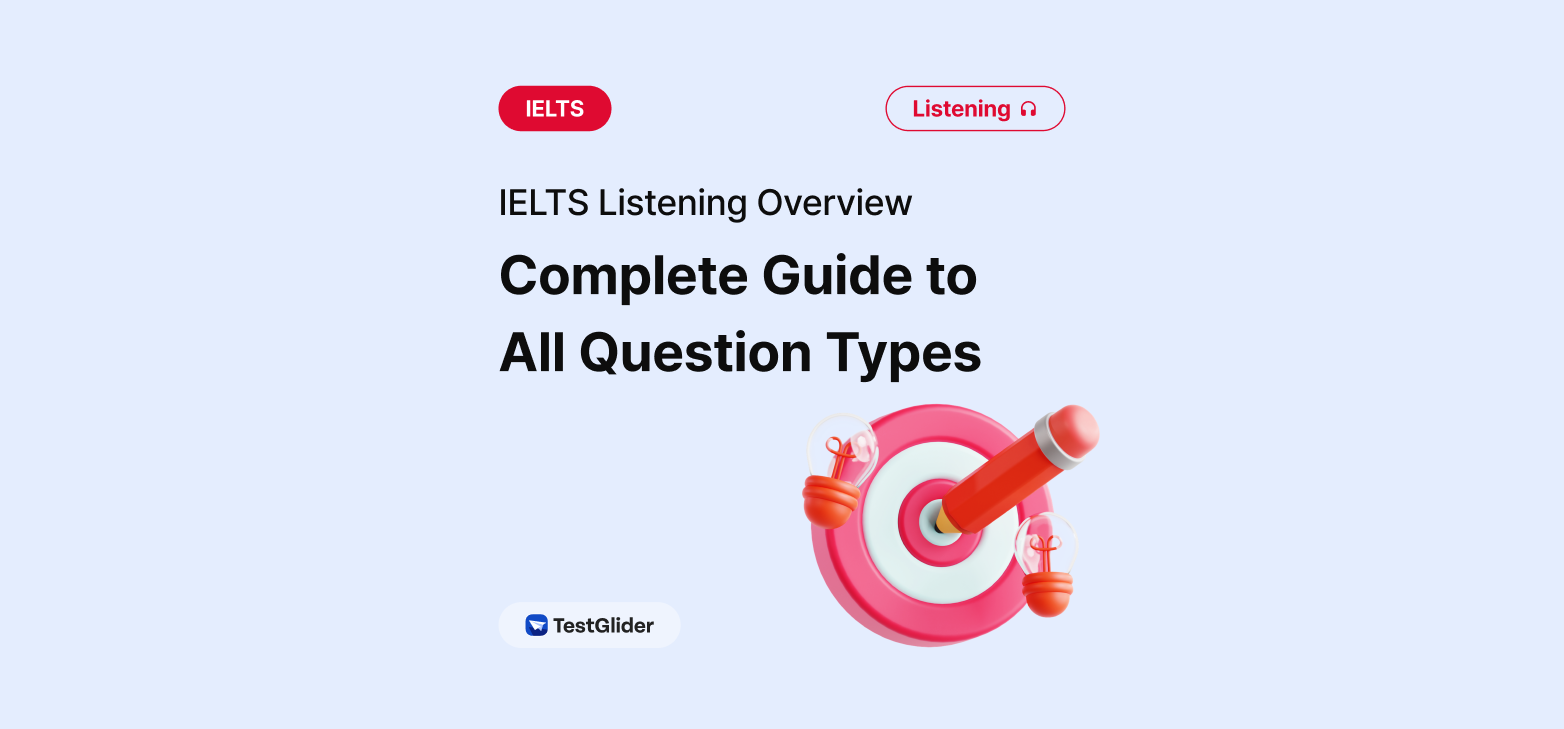Overview of the IELTS Listening Section
The IELTS Listening section is designed to assess your ability to understand spoken English in various contexts. Here’s what you need to know about the current format:
- First section of the test
- 4 recorded sections with increasing difficulty
- Approximately 30 minutes of listening time
- 10 minutes transfer time for answer sheet
- Score range: Band 0-9
IELTS Listening -Format and Structure
The IELTS Listening test consists of four sections, each focusing on different aspects of listening comprehension. The test is the same for both Academic and General Training modules.
Section 1: Social Needs
- Conversation between two people in an everyday social context
- Usually involves making arrangements or organizing activities
- Topics: accommodation, travel plans, social arrangements
- Question focus: specific factual information
Section 2: Social Needs
- Monologue set in an everyday social context
- Often a speech giving information about local facilities or arrangements
- Topics: community services, local events, tour arrangements
- Question focus: main ideas and specific details
Section 3: Educational/Training Context
- Conversation between up to four people in an academic environment
- Usually features student discussions or tutorial conversations
- Topics: course assignments, research projects, study arrangements
- Question focus: opinions, attitudes, and agreements/disagreements
Section 4: Academic Monologue
- Extended academic speech or lecture
- Most challenging section with complex academic content
- Topics: academic lectures on various subjects
- Question focus: main ideas, examples, and factual information
IELTS Listening Question Types and Strategies
The IELTS Listening test includes various question formats. Let’s examine each type with examples and strategies:
1. Multiple Choice Questions
Feature: Select the correct answer from several options.
Example :
Example: What is the student’s main reason for choosing the history course? A) Interest in medieval architecture B) Recommendation from a friend C) Career development goals
Audio: “While I’ve always been fascinated by medieval architecture, and my friend Sarah did recommend this course, I ultimately chose it because it aligns perfectly with my career goals in historical preservation.” [Answer: C]
Strategy:
- Listen for all options mentioned in the audio
- Watch for distractors that are mentioned but not the answer
- Pay attention to the speaker’s emphasis and conclusion
2. Form/Note/Table/Flow-Chart/Summary Completion
Feature : Fill in missing information from what you hear.
Example :
Student Registration Form
Name: John Thompson
Student ID: _________ [473591]
Course Code: _________ [HIS2103]
Start Date: _________ [September 15]
Strategy:
- Read instructions carefully for word limits
- Listen for exact numbers and spelling
- Pay attention to capital letters and plurals
3. Matching
Feature : Match items from a list with statements or descriptions.
Example :
Match the following facilities with their locations:
A) Library
B) Cafeteria
C) Student Union
Strategy:
- Preview all options before listening
- Note key words associated with each option
- Mark answers as you hear them
4. Sentence Completion
Feature : Complete sentences using words from the text.
Example :
The university library will be closed for _______ during the summer renovation.
Audio: “Please note that our library will be closed for three weeks while we complete the summer renovation project.”
[Answer: three weeks]
Strategy:
- Read the sentence stem before listening
- Pay attention to word limit instructions
- Listen for words that fit grammatically
5. Short Answer Questions
Feature : Write short answers using words from the recording.
Example :
Question: What document must students bring to the orientation?
Audio: “All new students must bring their acceptance letter to the orientation session.”
[Answer: acceptance letter]
Strategy:
- Note the maximum word count
- Write exactly what you hear
- Check spelling carefully
6. Plan/Map/Diagram Labelling
Feature : complete labels on a visual such as a diagram, a plan, or a map
Example :
Question: Label the map. Write the correct letter, A-I, for each answer.
Strategy:
- Identify the Starting Point
- Focus on the Shapes of Items
- Look for location-related words (e.g., across from, next to, behind, below, near, under).
- Follow the Word Limit
IELTS Listening – Scoring and Assessment
The Listening module is marked out of 40, with each correct answer worth one mark. The total score is then converted to the IELTS 9-band scale.
Score Conversion Guide:
- Band 5: 16-17 correct answers
- Band 6: 23-25 correct answers
- Band 7: 30-31 correct answers
- Band 8: 35-36 correct answers
- Band 9: 39-40 correct answers
Note: The exact conversion table may vary slightly between test versions to ensure consistency in difficulty levels.
Strategic Study Tips for High Band Scores in IELTS Listening
1. Master Strategic Time Management
Listening Section Strategy (40 minutes total):
- During Listening (30 minutes) • Listen carefully while reading questions • Write answers clearly as you listen • Use all pauses effectively for preparation
- Transfer Time (10 minutes) • Copy answers carefully to answer sheet • Double-check spelling and grammar • Review all answers systematically
2. Develop Core Listening Skills
Active Listening Practice:
- Focus on understanding main ideas
- Practice note-taking while listening
- Improve prediction skills
- Learn to recognize different accents
- Master concentration techniques
Understanding Various Accents:
- Listen to British, American, Australian accents
- Practice with different speaking speeds
- Familiarize yourself with regional variations
3. Build Essential Vocabulary
Academic Listening Vocabulary:
- Learn common lecture phrases
- Master numbers and letters
- Understand academic terminology
- Practice with subject-specific vocabulary
Note-Taking Skills:
- Develop personal shorthand
- Practice speed writing
- Learn common abbreviations
- Master symbols and signs
🎯 Ready to Master IELTS Listening ?
Take TestGlider’s FREE IELTS Practice Test and assess your current listening level. Join thousands of test-takers who’ve improved their scores through our comprehensive practice materials.
IELTS Speaking – Complete Guide to All Question Types (2024)

